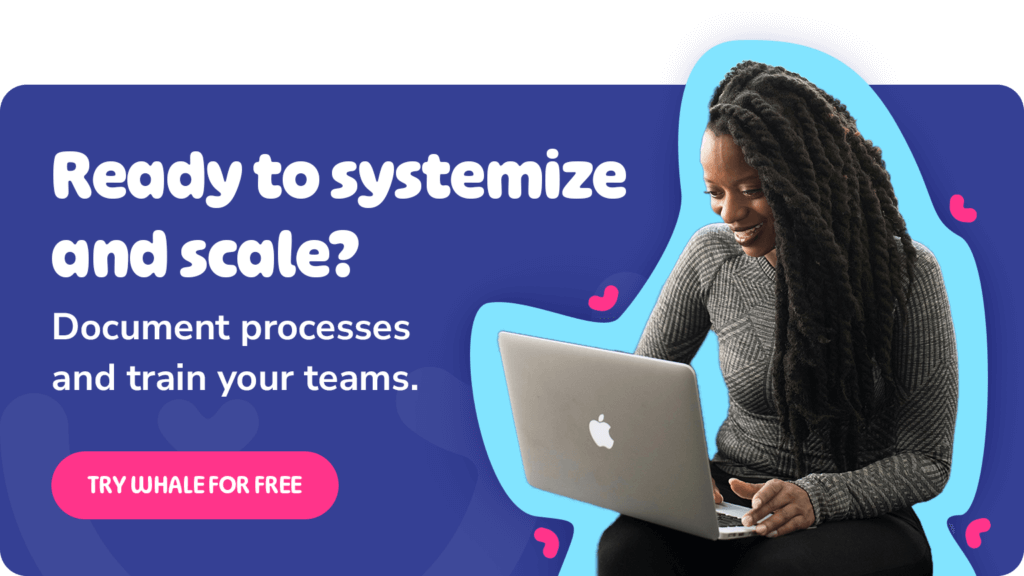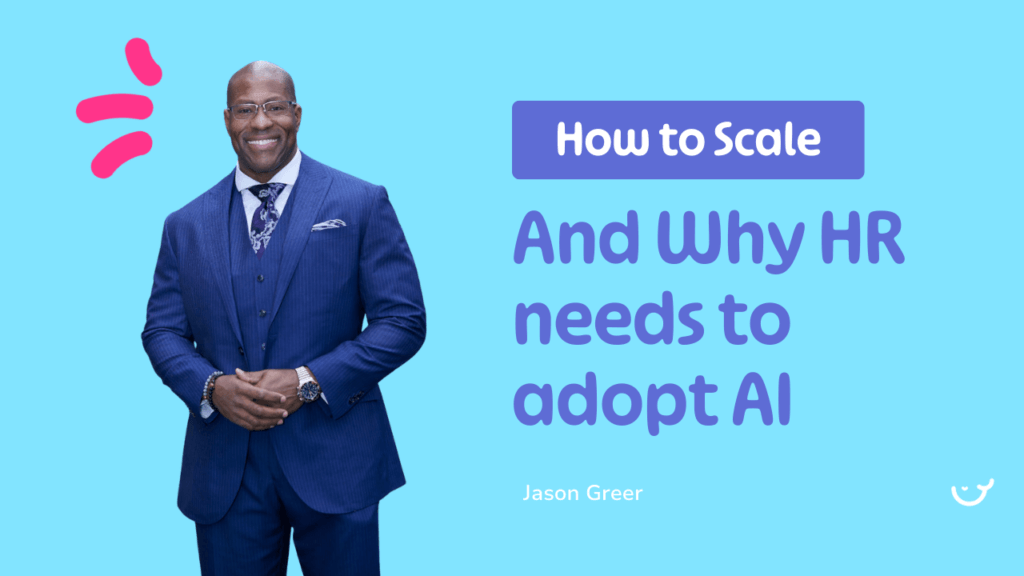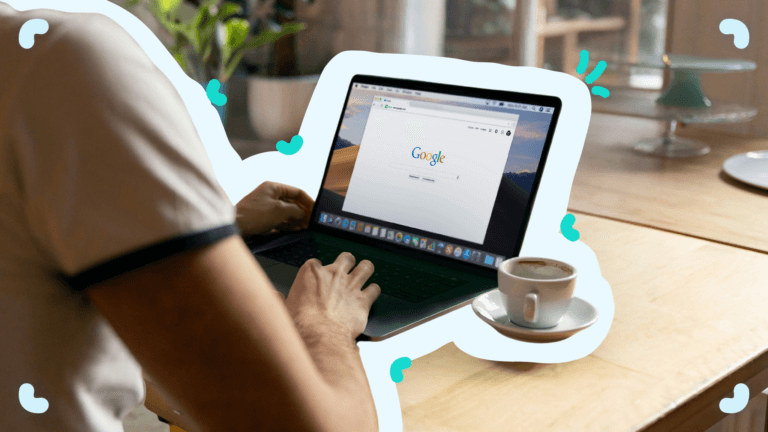A few decades ago, Artificial Intelligence might have seemed like a fictional tool of the future, but nowadays, we are all aware of the potential AI solutions have for many industries, including HR.
In our whitepaper Future-Ready HR: A Guide to Using AI and Automation for Training you’ll discover how AI and automation can revolutionize onboarding and training, empowering you to develop a future-ready workforce. Here we have extracted a few snippets from the whitepaper on how businesses have implemented the best way to introduce machine learning, automation or AI into their operations to become more productive and efficient. Continue reading to learn more!
AI in HR: Evolution and Impact
AI’s influence on HR is undeniable, with the technology steadily transforming how HR departments operate. A 2023 survey by Eightfold AI revealed that HR leaders see AI’s most significant impact in recruitment, employee onboarding, and performance management. Nearly 70% of HR professionals expressed excitement or optimism about AI, with almost 40% already using these solutions.
Early Stages: Initial Exploration and Testing
As we mentioned in the previous paragraph, knowing what needs will be covered by AI is essential to choosing the right tool.
In companies without complex HR software or data integration platforms, it is better to start with a simpler tool, such as generative AI, for example. Once the AI platform is incorporated, it will need to be taught or tweaked to fit your requirements. Also, AI solutions are working tools, so once you have the best option for your business, the workforce will need training to integrate the use of this technology into their daily tasks.
Current Trends: Accelerating AI Integration
Nowadays, it is common for AI and machine learning to be used as a way to gather data and extract insights that will help users make better decisions. In the case of HR, this might result in streamlining operations such as gathering applicant profiles and matching them to the job descriptions or even analyzing the performance of each employee in a personalized way. The potential of AI tools for HR is huge, and it can make considerable improvements to your business processes.
Gartner’s 2023 report further emphasizes this shift, noting that 81% of HR leaders have explored or implemented AI to enhance their processes. Notably, 52% of these leaders plan to use AI to improve employee experience, while 37% are focused on cost reduction, and 28% aim to support learning and development.
The Rise of Generative AI in HR
Generative AI, which powers tools like ChatGPT and GitHub Copilot, is revolutionizing HR by automating routine tasks and enhancing decision-making processes. According to Boston Consulting Group, the adoption of AI and generative AI could boost productivity by up to 30% across the HR value chain in the near future. These tools are already showing triple the speed in creating and visualizing HR content, significantly cutting down the time spent on onboarding tasks.
In HR, generative AI is being leveraged for everything from drafting job descriptions to pre-selecting resumes. Its ability to handle these tasks not only increases efficiency but also ensures a more personalized employee experience. This shift is less about replacing human roles and more about enhancing HR professionals’ capacity to focus on strategic planning and human-centric activities.
Why HR Professionals Must Pay Attention
AI keeps evolving in new and original ways, so HR professionals will definitely benefit from staying abreast of the latest developments; should any come along that suits their HR needs, they will be ready to incorporate it before the competition.
Will AI Replace HR Roles?
While AI is a tool that can hugely assist with simple daily operations, it is no replacement for human experience and instinct. Ultimately, HR is about recruiting people, and there is only so much AI can achieve: the final say will always rest upon a human being. AI’s purpose is to make all the information available and extract insights to help with the decision-making process, which should be carried out by the people with the knowledge to find a great fit, not just an adequate one.
Exploring the Benefits of AI in HR
Understanding the benefits of AI in HR can help organizations streamline processes and improve efficiency. In our current technology-driven world, AI presents multiple benefits for HR, given that it is an industry that manages a high volume of information; AI-powered software can be used to extract the essential points from a huge load of data, these advantages include:
- Better decision-making processes due to insights obtained through AI technology.
- Improved efficiency since workers no longer need to sift through so much data.
- Improved security when handling personal details and sensitive information since the smaller involvement of people can reduce the risk of human error.
- Better cost-effectiveness due to Improved efficiency and better decision making, which in turn may result in a higher productivity rate.
Moreover, AI’s ability to create personalized learning and development programs fosters a tailored employee experience, which is key to boosting motivation and satisfaction levels.
Key Applications of AI in HR
There are numerous examples of AI in HR that demonstrate how these technologies are transforming the industry. As well as the advantages we mentioned above, AI can be applied to HR to improve hiring processes and other daily tasks that are admin-related and not very complex, such as the following examples:
1. Transforming Recruitment and Hiring Processes
As explained in our whitepaper, after the applications are in for a new job opening, AI can reduce the number of candidates by automatically discarding profiles that don’t meet the criteria needed for the job. By matching the job descriptions with the applicants who have the required skills, AI can make the entire process shorter and more efficient. Moreover, since this initial selection is made solely on data, it is completely unbiased.
A market analysis from Spyrosoft shows that the following are among the most common solutions and functionalities using AI in recruitment and hiring processes:
Source: AI in HR tech
2. Enhancing Onboarding and Offboarding
After the right candidates have been selected, the onboarding process, as well as other operations, can be tailor-made for each new recruit. This provides the necessary information and training, as well as any other resources they might need to get started.
3. Strategic Workforce Planning
Firstly, with AI, workers can save time by automating certain processes and reducing the time spent on more monotonous tasks, freeing people for more complex projects. Also, with predictive analytics, employees can create strategies that use resources more effectively, thanks to the insights provided by AI, based on accurate company data; this will result in better plans and an increase in productivity.
4. HR Chatbots and Virtual Assistants
There are simple tasks that can be completed by AI tools, such as administrative work, screening applicant profiles and resumes, or sourcing candidates through social media or other platforms, thus finding candidates who might not have applied otherwise. Moreover, chatbots can be used to answer questions posed by employers and applicants alike, which would free HR personnel for more demanding challenges.
5. Advancing Learning and Development
Training is an essential part of human resources since new employees need to be brought up to speed as quickly as possible to begin functioning with the rest of the team. While human interaction and teaching in person is paramount, there are parts of the initial training that can be done using AI-powered tools, whether to create instructions, examples of work situations they will encounter or usage manuals for the tools used in the workplace. This newcomer experience can be personalized with tailored recommendations, specific learning resources and feedback once they start performing.
Essential AI Tools for HR Professionals
As we mentioned at the beginning, the key to choosing the right Artificial Intelligence solution for HR is knowing exactly what you need from the tool: collecting data, interacting with possible candidates, sifting through applications, or creating a platform to integrate all corporate data. From generative AI to predictive analytics, there is an AI tool for every HR department.
The Future Outlook
As technology continues evolving, HR will keep developing their own solutions, which will include AI-powered software, at least in the near future, as well as any other tool that will make operations easier and more efficient; but, what can we expect moving forward?
1. HR’s Influence on AI Adoption
If HR departments begin using AI successfully, this can be a springboard for other parts of the business to begin using automated AI or machine learning solutions for their own processes. More data means more accurate insights, so the more information shared at a corporate level, the more strategies and plans will improve.
2. The Evolving Role of HR
The role played by HR continues to develop: candidates can apply through more platforms, there is much more information available about applicants, and the job openings themselves can reach farther than ever before. Technology has widened the pool of possible recruits, which somewhat complicates selection processes; a trend that has only just begun and that makes the use of AI an essential part of future HR operations.
3. Promoting Ethical AI Practice
With new technologies capable of handling vast amounts of data, including personal details and employee or applicant information, comes the need for regulation to ensure there are no breaches resulting in damage. While supporting innovation, there are new laws, such as the EU AI Act, that hope to protect users from the risks posed by AI tools, and to make sure processes are transparent and ethical for all the parts involved.
Bottom line?
AI is revolutionizing HR by automating repetitive tasks, enhancing decision-making, and streamlining processes like recruitment and employee management. AI-driven tools can efficiently screen resumes, predict employee retention, and reduce bias in hiring.
81% of HR leaders are already exploring AI to boost efficiency. Additionally, AI provides data-driven insights that optimize operations, saving time and costs while enabling HR professionals to focus on strategic, human-centered initiatives.
FAQs on AI in HR
How is AI used in Human Resources?
AI is revolutionizing HR by automating repetitive tasks, enhancing decision-making, and streamlining processes like recruitment and employee management. AI-driven tools can efficiently screen resumes, predict employee retention, and reduce bias in hiring.
81% of HR leaders are already exploring AI to boost efficiency. Additionally, AI provides data-driven insights that optimize operations, saving time and costs while enabling HR professionals to focus on strategic, human-centered initiatives.
What AI tools are used in HR?
Whale is a powerful AI tool used in HR to streamline onboarding, training, and documentation processes. With Whale, you can easily create and organize standard operating procedures (SOPs), policies, and internal knowledge, all with AI assistance. Whale’s features include AI-assisted writing, automated training flows, and AI-generated quizzes, ensuring your team is fully trained and knowledgeable.
Other notable AI tools in HR include Albus, Zavvy, Effy AI, Leena AI, and Entelo. These tools also enhance various HR functions, from talent acquisition to employee engagement.
Is AI replacing HR?
AI is not replacing HR roles but rather enhancing them. It automates mundane, repetitive tasks, allowing HR professionals to focus on the human aspects of their job, such as employee engagement and strategic planning. AI serves as a supportive tool, providing insights and efficiency, but the final decisions and human touch in HR remain essential and irreplaceable.
How to learn how to use AI?
To learn AI in HR, start by using tools like Whale. As you work, you’ll gain insights into how AI is impacting HR, how technology shapes the workforce, and the key ways AI is disrupting HR tech. You’ll also discover the benefits of AI for HR, explore the Future of Work, and learn how to prepare for AI implementation in your HR practices. Whale provides hands-on experience, making AI in HR accessible and practical.








